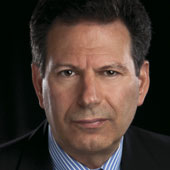Crime and Democracy in Bulgaria
How much of the old Soviet style communism still sets the rules for the country?
June 23, 2001
The idea that the Internet and other new technologies annihilate distances is only a half-truth. Americans and Bulgarians may send e-mails to each other, but once they leave their computer screens, they face two vastly different societies: one in which the local currency is worth something, and one in which it isn’t. And in one society, World War II ended in 1945, while in the other it lasted until 1989…
In Bulgaria, I found a society that was regarded as a democratic success abroad, but was really under siege from criminal clans. Organized crime is, of course, a common feature of former Soviet bloc societies.
By the 1980s, communist parties had evolved largely into large-scale mafias which, when the system collapsed, simply divided into smaller mafias that purchased politicians in all those new and weak democracies. Common, too, are allegations of a new Russian imperialism by way of European-wide crime connections and energy monopolies like Gazprom.
Nowhere, however, were such phenomena so transparent as in Bulgaria when I visited in 1998. Is is a poor, small country in which democratic institutions have been fighting valiantly against Russian attempts at “re-satellitization” by criminal stealth. Bulgaria illustrates how the potential evils of the new century are ominous precisely because of their ambiguity. It is no accident that here the word “groupings” is used instead of mafias.
These networks include legitimate enterprises — audited by Western accountants and, increasingly, linked to Western multinationals — as well as legitimate entities. They engage in activities such as compact-disk pirating, illicit-drug activity, money laundering and extortion. One foreign diplomat told me, “These groupings engage in violent intimidation and corrupt politicians. Yet, their genius is to cover their tracks to an extent that they are quasi-legitimate.”
Bulgarian crime has no centuries-old tradition like Italy’s, or even one of heroic thieves and warrior clans as in Russia, Serbia, or Albania. Nor is there the colorful ethnic ingredient here that distinguishes criminal circles in the Caucasus, particularly in Georgia and Chechnya, with their family mafias and highwaymen. The Bulgarian groupings essentially are the result of the transition from communist totalitarianism to parliamentary democracy.
The breakdown of the Communist state provided numerous opportunities for people close to power to cash in. Some Olympic wrestlers, for example, gained control of motels along Bulgaria’s international highways and at border checkpoints.
These motels provided revenues from prostitution and currency dealing and helped give them access to the car-theft business. This involved the theft of both local vehicles and those stolen in Western Europe, which passed through Bulgaria to the former Soviet Union by ship across the Black Sea.
Not surprisingly,a strong bond exists between Bulgaria’s groupings and Russia. Political party connections evolved into economic connections when Bulgaria was still a subservient satellite state. Strong links between the KGB and Bulgaria’s communist-era security service became crime connections. And the countries’ similar Slavic languages helped nourish social connections among criminals.
But what makes Bulgaria particularly vulnerable to Russian organized crime is that unlike other formerly communist states such as Hungary and Romania, here — for linguistic and historical reasons — Russians as a people are very much liked, even if Russian communism was not.
Thus, even with a stable democracy, Bulgaria may not become a civil society if it continues to be undermined by this new and subtle Russian imperialism. As former president Zhelyu Zhelev told me, “The political parties could easily evolve into masks for mafia structures, with crime groups financing election campaigns.”
The West could then leave Bulgaria to its fate by declaring it a “democratic success story.” Since the Washington establishment typically prefers to simplify its problems by accepting official truths this seems a possibility. Bulgarians are right: They are in danger of being forgotten.
